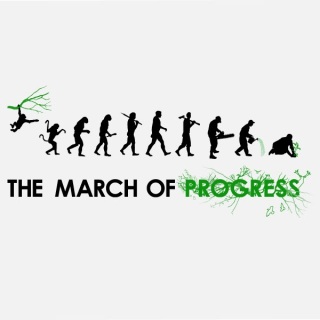eroded due to the onslaught of ever-evolving lifestyles, aided by the marvels of technological advancement. Taking the example of the Internet, on one hand, accessibility to information & knowledge at the click of a button is a veritable boon to everyone (esp. students) & has made our lives much simpler. On the other hand, it has severely limited the actual contact with teachers, friends & elders, and thus, the learning that a person gains is incomplete as he/she can’t take the advice that another person can give with the vast knowledge & experience at his disposal.
Today, a small child can access & navigate the Internet with an ease that still astounds the older generation. But what’s even more astounding is the neglect of the basic human traits of friendship, society, relationships & family values. Due to all the technological advancements & gadgets available today, children often miss out on the most enriching of childhood experiences like playing outdoor games (like soccer, cricket, etc.) with friends, which apart from being immensely enjoyable & physically exhilarating, also develops traits such as teamwork, physique, discipline, etc. from an early age. But now, when the concept of friends is gradually being limited to virtual friends on social networking sites, one shudders to think of the implications with regard to the personality development of a child because the time spent with computers or mobile phones for entertainment can never really substitute the holistic benefits of outdoor play. Such examples can be found aplenty in the course of our daily lives.
Now if we compare the hustle & bustle of modern city life & the peace & calm rustic village life, we can see that in cities, life is race with a variety of factors. It’s a race which everyone tries their level best to win, but nobody actually wins as the race never ends. Seeing as everyone wants to be happy, is such a race justified, when viewed through the prism of actual human contentment? Is not the village person, with his simple needs & easy smile, more content with his life? This question will of course have different answers depending on who we ask.
As for me, I think that this age of rapid development has created at least as many problems as it has solved, if not more. The reason is that the basic goal of life, which should be the pursuit of happiness, has now been replaced by the pursuit of money. Money & happiness are considered analogous in our present society, but they actually aren’t. In this mindless pursuit of money, no one has the time now to appreciate the beauty of life, which consists not of multi-billion dollar skyscrapers, but a simple act of kindness to someone in a time of need.
So, there is an urgent need to stop for a moment & think about where we are actually heading – is it development or destruction? Do we have to wait until mankind has grown so far apart from each other that we can’t even see the suffering of our own species due to our mindless greed, or can we still mend our ways?
To answer this question, I’ll take the help of that most magnificent of human feelings – Hope. I sincerely hope that we, as the most intelligent species on earth, take our fair share of responsibility & sincerely think about the path which we should follow. Though mankind will likely last for a long time though its determination & sheer ingenuity, but we’ll have to make sure we don’t lose our humanity somewhere along the way.


cool!!made a nice point! specially loved this one – ” that we can’t even see the suffering of our own species”
-Ani
LikeLike
just came to my mind yesterday when i saw a homeless man beneath a flyover.
LikeLike
are capitalist bhaiya ye aapko kya ho gya….:)
LikeLike
Jadoo ho gaya. We have to explore different mindsets. Just an effort in that direction.
LikeLike
Problem lies with the definition of 'development'.
-you know who i am
LikeLike
No I don't.
LikeLike